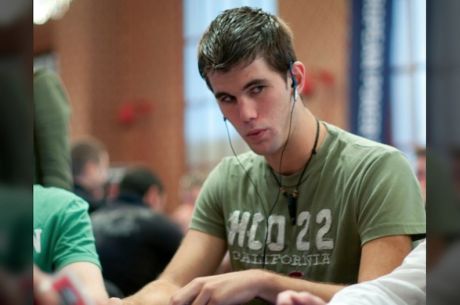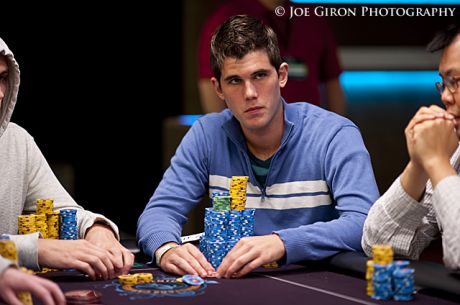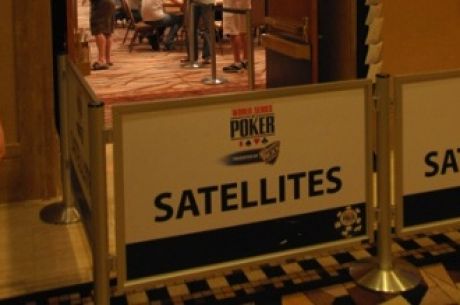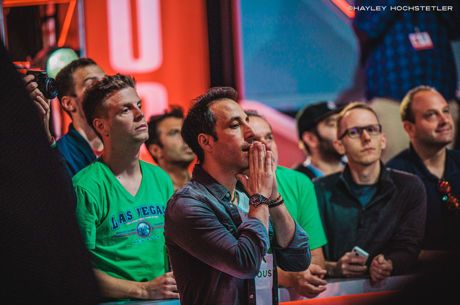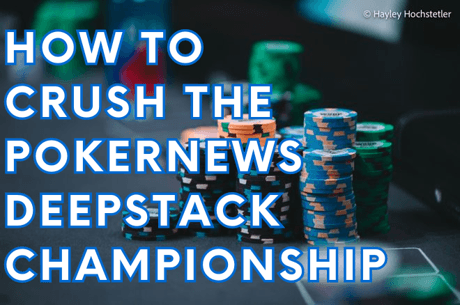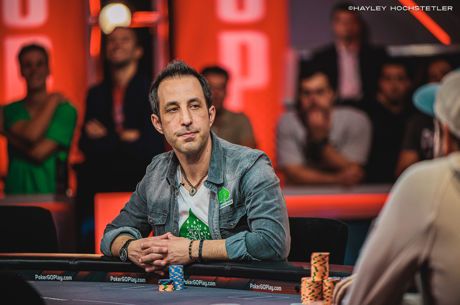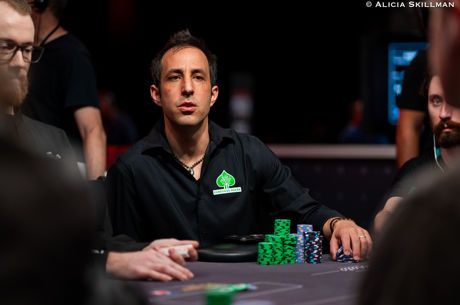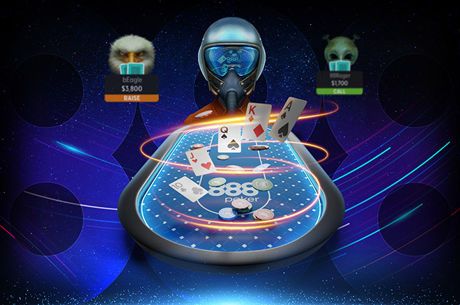Advice from Alex “Assassinato” Fitzgerald, Vol. 4: How to Play Multi-Table Satellites
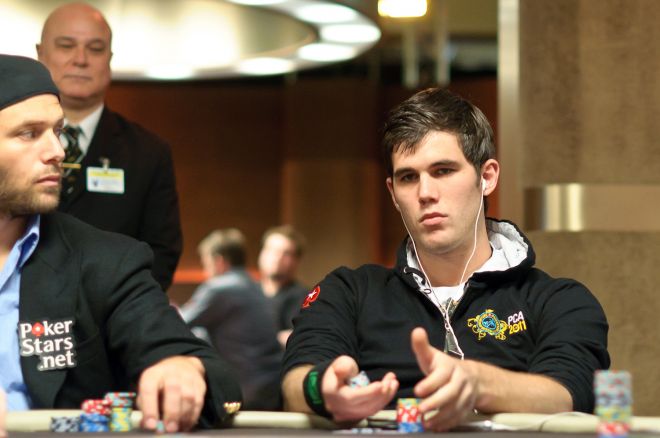
I recently posted a question to my Twitter and Facebook followers: “What topic would you like to see me write an article on?”
A surprising number of you wrote in that you wanted information on how to play multi-table satellites. The timing seemed serendipitous — the night before I had won a large tournament seat on a network I endorse. The concepts were fresh in my mind when the question was asked.
I don’t think I’m especially great at multi-table satellites. Frequently, I go to an ICM calculating tool and hang my head in embarrassment at the idiocy of one of my plays. Yet I’ve won more than my fair share of packages. I satellite into nearly every live event I play. I have played on the European Poker Tour for years — practically every event — while rarely ever buying in directly.
What has helped me do this well? It’s not really smarts. It’s not even a deep understanding of ICM. It’s just a few pointers I was blessed enough to learn early in the game, which I still see people botching on a regular basis. Here they are:
1. Understand What Size Stack You’re Aiming For
Many times I talk to people who are playing multi-table satellites, and they have no idea what they’re trying to do. Sure, they know they have to acquire enough chips to survive to the point of winning a seat, but they don’t know how many that actually is.
Try this formula. Take however many people entered the tournament. Multiply it by the starting stack. This will give you the total number of chips in the tournament. Now divide that number by the number of packages being given out. That will give you the average stack of the players who’ll be making it to the winner’s circle.
You’re going to need to aim for about 80% of that average stack in my experience, although you can get away with less if nobody has a clue what they’re doing (look for this in live events especially).
Before you get to your desired stack, you are in what I call the “dog fighting” stage. You should be playing to maximize your chip EV. The closer you get to your desired stack, the less you should gamble.
2. Learn Some ICM Basics
I’m not an expert with ICM. Actually, math was one of my worst subjects. However, I’ve been around the whiz kids long enough to have absorbed some of the main points.
Tournament chips obviously do not translate directly to money. Their real worth is derived from the likelihood they’ll give you to win the tournament. This is the basis of independent chip modeling, or ICM. The model tells you what percentage chance your chips give you to win a certain amount of the prize pool, and thus from there to figure out what that makes each chip worth.
To put it into terms that are less like hieroglyphics, imagine this: You have the exact average stack everybody should have to win a seat. Let’s say also you are at a point in the tournament at which your chances of winning the seat are 96%. Barring a huge cooler or a bizarre series of events, you’re probably getting in.
Someone with the same stack size as you shoves all in, and you look down to see you have AxKx. Meanwhile he sneezes and his hand flips over to reveal he has AxQx. Do you call?
No, you fold. If you call and win this pot your chances of winning the seat go from 96% to 99.99% — an increase of 3.99%. If you call and lose, your chances of winning a seat go from 96% to 0% — a 96% loss.
Do you see why, despite the stacks being numerically equivalent, the chips you would be risking here are worth far more than the chips you stand to gain? This is the basis of ICM. And given the oddly-flat structure that multi-table satellites have, it’s important you understand the underlying ramifications of each bet.
3. Figure Out Who Has Already Won a Seat... and Is Still Playing
Right before you get the stack you need is where the tournament becomes tricky, and completely unlike normal tournaments. You know you don’t want to get into a huge flip, but you still need to hang in there. What do you do?
Look for people you know to be competent regulars, players who have a stack that is already above the seat-winning threshold. They’re likely just trying to take the blinds and antes so as not to blind out. They don’t want to play a big pot, because getting additional chips will do little to nothing for them, as we just established.
Versus them leverage the fact you’re still allowed to gamble with your stack. When they raise, three-bet large enough to make it clear to them they’re risking their seat if they continue.
4. Don’t Just Reraise or Call
Let’s say the stack you need is equivalent to 35 BBs. You have 28 BBs. A guy who has 60 BBs and a seat all but wrapped up opens from the cutoff. You have A♠Q♠.
Don’t just reraise or call. That would be the way to maximize your number of chips, but not your chances of winning a seat. Just shove. This will put you really close to your goal if he folds. Additionally, it’s hard for him to call a shove even with pocket kings. He all but has his seat wrapped up. If he wins the all-in he doesn’t gain much, but if he loses the all-in he’s in real trouble.
5. Figure Out Who Thinks They’ve Already Won a Seat... and Isn’t Playing
Many players will get to the stack they want and just sit out. They will not play anything but a premium hand. Look out for these guys. Sometimes they will feign like they want to play each hand, but they’ve literally folded every hand for three orbits. Steal these guys’ blinds.
6. Figure Out Who Has Made It a Dream to Make it To This Event
Research the people at your table. What stakes do they normally play? How well do they do there? If it’s a live tournament, how old is the guy? Does it look like he or she gets many opportunities to satellite into events?
If the seat really matters to them, they’ll likely alter their typical range and play practically nothing if you threaten their “secure” seat. Reraise them. Check-raise more flops versus them.
7. Play More Satellites
…and prepare for more nausea. The satellite game is bloody. I’ve literally stone-bubbled over $100,000 worth of seats in my life, and I don’t even think I play satellites that much.
However, they are some of the most profitable games left. In an age where seemingly every poker site is trying to rake the players to death and award 60% of the field with a cash, satellites are one of the few real tournament games left. Prizes are concentrated into a few places, and you’ll see a lot of guys show up without proper preparation.
Put in more work than they do. Crush.
Good luck to all of you.
Check out this link to read about Assassinato and Apestyles’s new joint webinar, “Why Apestyles Is Right!” Learn all about how Jonathan Van Fleet makes more money than anyone with trash hands out of position, and see how he bluffs regulars at all stakes!
I have a deal for my fans where they can get 80%+ off the price to join CardRunners. With bonus code FREEMONTH, you’ll get two months of access to CardRunners for just $30, a $130.00 discount! That is more than 80% off of what you’d usually pay to see over 2,000 training videos from the best minds in poker today! Use that sign-up code when you, uh, sign up, or if you have an expired account at Cardrunners write them with FREEMONTH in the title at [email protected]. They'll set you up.
In addition, don’t miss the recordings of my private webinars “You Flat Too Much” and “Why Pessagno Is Right.” The hardcore should also be sure to check out my live sweat series, where I recorded every hand of my recent WCOOP with live commentary. See every hand of my $215 Second Chance Win!
To receive every new article of Alex’s as they come out, please write in to [email protected] and ask to subscribe to our mailing list. For private lessons, consult this link. Listen to Alex’s free podcast at Oneouter.com, and follow me on Twitter @TheAssassinato and on Facebook.
Get all the latest PokerNews updates on your social media outlets. Follow us on Twitter and find us on both Facebook and Google+!

